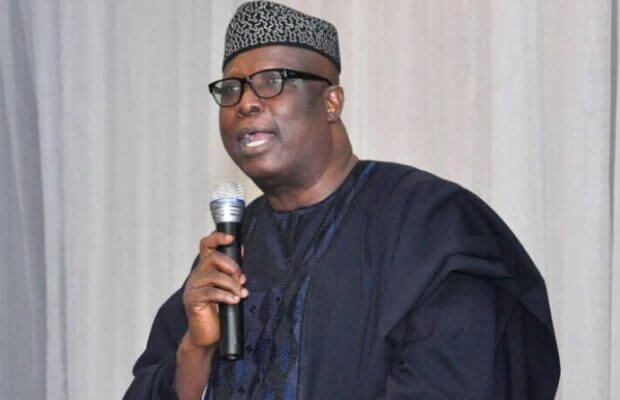When a great power promises to come “fast, swift and vicious” into
another country, the language is cinematic — and chilling. That is
precisely the tone that has shaken public life in Abuja and Washington
after President Donald Trump told the Pentagon to “prepare for
possible action” in Nigeria — a warning amplified by CNN, Reuters and
the Associated Press.
The moral outrage at the slaughter of innocent Nigerians — Christians
and Muslims alike — is real and justified. But moral outrage is not a
military strategy. A “swift” foreign intervention, however
well-intentioned, risks turning a complex local crisis into a
prolonged international nightmare. It would almost certainly make
ordinary Nigerians less safe, not more.
The Hard Realities
First: Nigeria’s insecurity is not a single enemy in a single place.
Our crisis is a mosaic. Boko Haram and ISWAP dominate the far
north-east; heavily armed bandit networks terrorize the north-west and
north-central; separatist militias and cults trouble the south-east;
criminal gangs strike in the south and even at the northern edge of
the south-west. These are thousands of fighters spread across tens of
thousands of square kilometres, embedded in local economies and
politics. There is no single “Al-Zawahiri” whose elimination would end
the problem.
Second: foreign military force can win battles but rarely wins hearts
or politics.
Advertisement
Iraq and Afghanistan are the cautionary tales. Air strikes and raids
can destroy camps and kill commanders, but they cannot fix corruption,
broken policing, land disputes, or the poverty and exclusion that
drive recruitment. Insurgents adapt faster than bureaucracies; they
melt into civilian populations and mutate. The result is almost always
a long, costly occupation.
Third: corruption within Nigeria’s political and military elite would
compromise any alliance.
Security is built on trust, and trust is scarce where corruption
thrives. Over the years, weapons and intelligence meant for Nigeria’s
defence have found their way to bandits and insurgents. Some security
personnel have been caught selling ammunition to the same enemies they
were sent to fight. Imagine a joint U.S.–Nigerian operation where
local collaborators leak plans, sell coordinates, or divert supplies.
That is not speculation — it is a risk written into our current
system. A “swift” war fought through compromised hands will not be
swift at all.
Fourth: too much of Nigeria remains ungoverned.
From the Kamuku forest in the northwest to the Sambisa enclave in the
northeast, vast areas lie outside effective state control. These
spaces are not just hideouts; they are incubators of terror. You can
bomb a camp, but you cannot bomb a vacuum. Unless the state fills
those spaces with schools, clinics, courts, and police posts, the
cycle of occupation and reoccupation will continue.
Advertisement
Fifth: unilateral U.S. action would be a diplomatic and moral disaster.
A strike without clear legal mandate and Nigeria’s consent would
fracture relations, feed extremist propaganda, and strengthen the very
forces it seeks to destroy. It would turn a counterterrorism mission
into a sovereignty crisis.
What Real Help Should Look Like
If the United States truly cares about protecting Christians and other
innocent Nigerians, the path forward must be cooperative, not coercive
— practical, limited, and accountable.
1. Operate in partnership, not as occupiers.
Share intelligence and logistics with Nigerian oversight, under strict
rules of engagement and civilian protection.
Advertisement
2. Cut the supply lines and choke the money.
Target illicit arms flows, ransom networks, and laundering routes that
fund terrorists.
3. Build police, courts, and rule-of-law capacity.
Train prosecutors, improve pay and discipline for police, and end
impunity through transparent trials.
4. Invest in community protection and reconciliation.
Support early-warning systems, local policing, and farmer–herder mediation.
5. Scale humanitarian and livelihood support.
Rebuild schools, hospitals, and jobs to dry up recruitment pools for
armed groups.
6. Use multilateral pressure and targeted sanctions.
Work through ECOWAS, the AU, and the UN to isolate those profiting
from chaos and corruption.
Final Thought
Rhetoric about “fast, swift and vicious” operations may excite
television audiences, but it will not solve Nigeria’s deeply rooted
crises. If the goal is genuine peace, the strategy must be patient,
transparent, and political. Military force can be a tool — it cannot
be a cure.
Any intervention that ignores these truths risks not liberation but
occupation — and neither Nigerians nor Americans should want that.
POLICY CHECKLIST: What Real Help Should Look Like
1. Plug the leaks.
Track every weapon and contract; punish diversions. Corruption kills
as surely as bullets.
2. Govern the ungoverned.
Turn empty spaces into serviced spaces — police, clinics, courts,
roads, and schools.
3. Strengthen local justice.
Train and pay security officers; empower prosecutors; end impunity for abuse.
4. Cut the lifelines of terror.
Disrupt arms trafficking, illicit gold, ransom flows, and laundering networks.
5. Partner with discipline.
Any foreign aid or joint force must operate under Nigerian oversight,
clear goals, and strict civilian-protection rules.
— Babafemi Ojudu is a journalist, former senator, and former Special
Adviser to Nigeria’s President on Politcal Matters .

